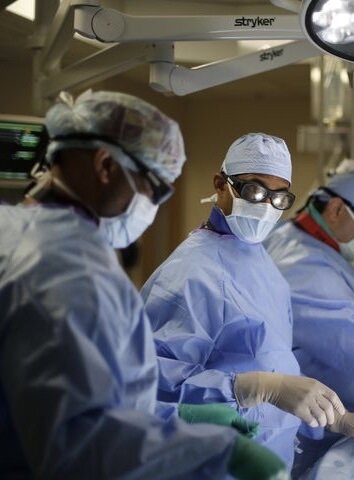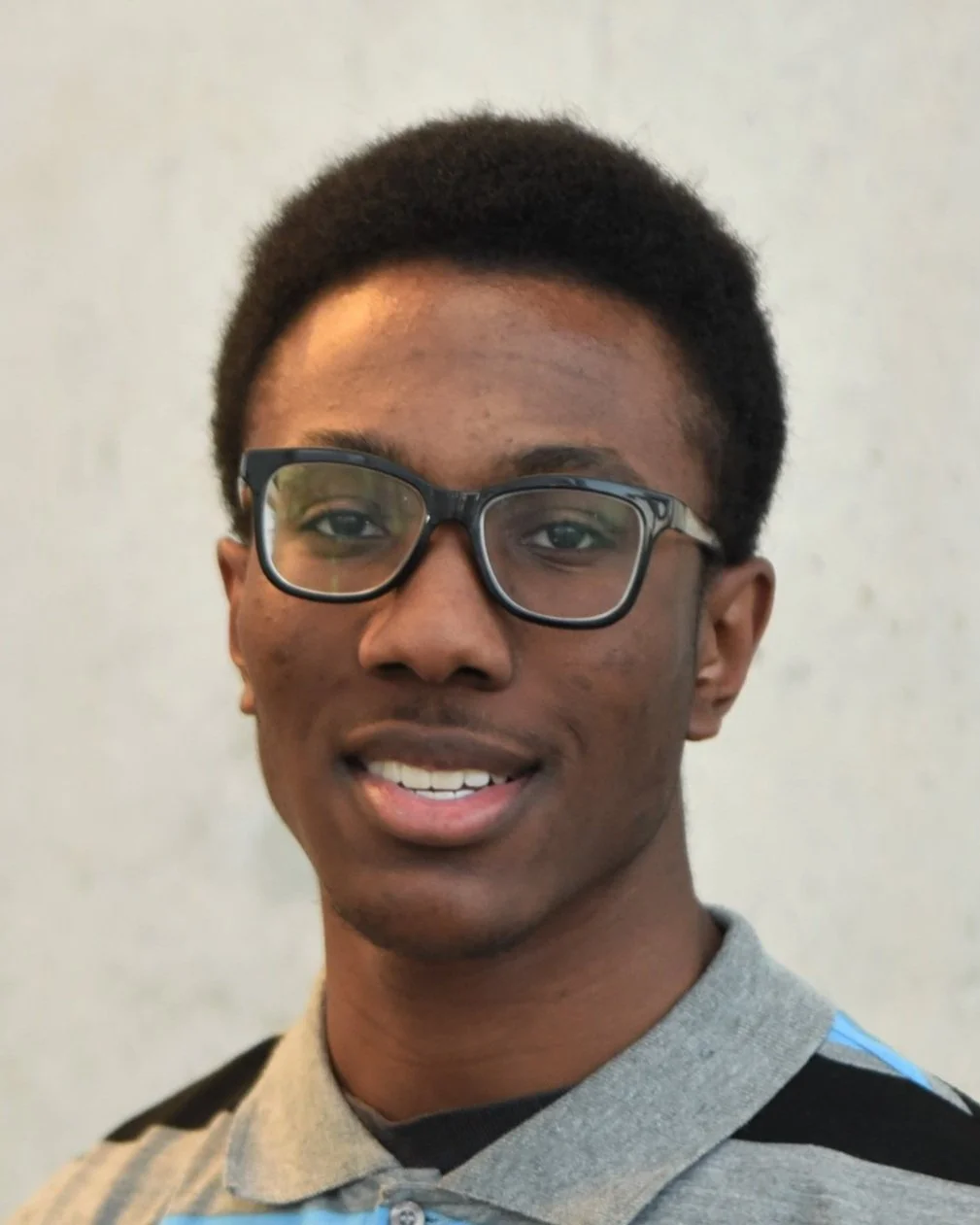First BBPA scholarship winner excels in highly technical medical field
August 14, 2020
Since the launch in 1986, the Black Business & Professional Association (BBPA) scholarship program has supported nearly 1,150 young Canadians pursuing academic excellence with about $4.5 million in funding.
Many have gone on to distinguish themselves in the arts, business, law, communications, education, medicine and other professions.
They include Dr. Wayne Batchelor who received the first scholarship of $1,000 awarded 34 years ago.
The funds were accrued from a brunch organized by late entrepreneur and philanthropist Bev Mascoll. The event was held at her downtown residence.
“We got a fair number of applicants, but I knew we would only be able to give one scholarship,” recounted BBPA co-founder Kamala-Jean Gopie who chaired the first scholarship committee. “Wayne’s marks, particularly in the sciences, were very high and that sort of set him apart.”
Though he was the recipient of scholarships on his way to becoming Canada’s first Black Interventional Cardiologist, the BBPA honour had significant meaning for Batchelor.
“I remember the day I got that award as if it was yesterday because it was the first time that I was recognized by my community,” he said. “One cannot entirely appreciate how that impacts you until you go through that process. It’s one thing to be honoured by your society or maybe your training program, but when your community recognizes your efforts and achievements, it almost has more meaning and it has an even deeper impact. That’s one of the awards I am most proud of because it came fairly earlier on in my career.”
The awards ceremony at the Jamaica Canadian Association Centre, then located at 1621 Dupont St., blew Batchelor away
“It was more sophisticated and elaborate than I would ever have expected,” he noted. “It was really a nicely done event.”
Completing his medical degree at Queen’s University in 1990, Batchelor split six years doing his residency and a Cardiology Fellowship at the University of Toronto before receiving a National Fellowship Research Award from the Heart & Stroke Foundation of Canada to attend Duke University in North Carolina.
During the three-year program, he completed a Master’s of Health Science degree in Clinical Research and an Advanced Fellowship in Interventional Cardiology.
Returning to Canada in 1999 as Canada’s first Black Interventional Cardiologist, Batchelor practiced for three years at St. Michael’s Hospital in downtown Toronto before heading to Tallahassee in 2002 after being hired by the Southern Medical Group whose physicians practice internal medicine and cardiology.
The combination of direct patient care, intervention and innovation in a single field made this sub-specialty of cardiology appealing to Batchelor who, nine years ago, was instrumental in the development of North Florida’s first Structural Heart Program.
For the non-surgical option, a catheter is used to repair mainly damaged or weakened vessels and narrowed arteries.
“Nowadays, Interventional Cardiologists also implant valves and do other structural heart procedures to correct heart disease,” he pointed out. “It’s a highly technical field, it’s very demanding, but very interesting and requires extensive training.”
Canada’s first Black interventional cardiologist Dr. Wayne Batchelor
Batchelor believes that the substantial training required to become an Interventional Cardiologist is the principal reason why there’s a paucity of Black Canadians pursuing the unique medical discipline.
“It’s a long haul,” he said. “After you get your medical degree, it takes another seven or eight years to really become fully trained. You have to be able to commit yourself for a very extensive period of time. For Blacks in Canada and the United States, I think it is very hard to commit that extended period of training. There are financial consequences and many people feel they have to get out and earn a real pay cheque.
“Also, the talent pool from which we are able to draw is small. This is a problem that really stems from primary school to the university level and I think there are just fewer Blacks pursuing medicine at a high level in terms of sub-specialization than other segments of the community. There are a lot of reasons for that, including socio-economic and systemic bias and lack of role models. That’s why we have that disparity. I, however, get the impression it’s changing.”
Leaving Canada 17 years ago to practice in Canada was difficult for Batchelor who married an American at Duke University chapel during his training.
“I convinced her to come with me to Canada as I had a job waiting for me as an Assistant Professor of Medicine & Cardiology, “he said. “It was a wonderful job with great mentorship and support and I have fond memories of working at St. Mike’s. But after three years, a few things came up.”
Batchelor’s parents, Barry and Alison who are both deceased, were splitting time between Kingston, Ontario and Florida.
“They became snowbirds after retiring and my dad had some health challenges, so we wanted to be close to my parents,” he said. “It was either moving back to Kingston where I grew up and I saw that as going a little bit backwards in terms of what I just foresaw as opportunities at the time. My wife was interested in trying to be closer to her family in the southeast United States. So the move was mostly for family as I loved my opportunity in Canada at the University of Toronto.”
In 1966, Queen’s University hired Barry Batchelor – Jamaica’s first PhD-trained engineer -- as one of its first Black professors. He chaired the Department of Civil Engineering in the 1970s during a brilliant 27-year career highlighted by his pioneering research, commitment to excellence and dedication to racial equality.
As part of its 125h anniversary celebrations last year, the Faculty of Engineering & Applied Science posthumously honoured the civil engineer whose extensive work with the province’ Ministry of Transportation revolutionized the design of concrete bridge deck slabs. He died nine years ago.
Batchelor and his siblings Roger, who is a lawyer and Nicola, who is a nurse, attended the ceremony last September.
“It was a really special moment for our family because you sort of saw his life’s legacy professionally come together in a nice way,” he said. “Sometimes when you are growing up, you don’t recognize what your parents do and how special they are until afterwards, especially when you have your own kids. I was blessed with phenomenal parents. In addition to my dad’s groundbreaking work and research, he was a huge advocate for race relations and he held a special place in his heart for international students at Queen’s. Every Christmas and on some holidays, we would have over at our home students from across the world. It was a wonderful United Nations-type of experience. He was a special person as was my mother.”
Dr. Wayne Batchelor with his siblings Roger and Nicola attended an event at Queen’s University last year to honour their father
Alison Batchelor, who passed away in May 2018, was a nurse and midwife for over four decades.
“They were just great people who worked hard and didn’t complain,” said Batchelor who was a year old when his family migrated to Canada. “They had expectations for their children.”
After practicing in Florida for 17 years, he joined Inova Heart & Vascular Institute (IHVI) in northern Virginia in March 2019 as the Director of Interventional Cardiology and Interventional Cardiology Research & Innovation.
Batchelor was recruited by Dr. Christopher O’Connor who trained him at Duke and is the President of IHVI whose experienced cardiac physicians offer a full range of advanced treatments.
With the United Nations Development Program noting that COVID-19 is the defining global health crisis of our time and the greatest challenge faced since World War II, Batchelor has added his voice, claiming the pandemic will leave an indelible mark on health care.
“First of all, I don’t know that we are completely going to get rid of COVID-19,” he said. “I believe a vaccine is going to be instrumental in knocking it down and perhaps out. It has changed the way we staff beds, how we look at health care emergencies and the way that we exercise protective measures within health care as we try to prevent the transmission of various infectious diseases, including viruses. It has turned upside down the finances of health care in the United States and I am sure in Canada because of the huge financial losses that many hospitals have taken along with physicians and other health care professionals.”
Inova furloughed 450 of its 20,000 staff.
Batchelor said the pandemic has amplified the disparities in health care access, outcomes, treatments and mortality that run along racial and ethnic lines.
“These disparities are particularly unfair because many of the people who are on the frontline are disproportionately represented by minorities,” the 2017 Capital Medical Society Outstanding Physician of the Year said. “Blacks and Hispanics, many of whom hold these positions, have a higher rate of co-existing conditions and with that comes a higher risk of death or infection from COVID. When you lay on top of that the fact that many minorities in the United States and Canada are more likely to live in settings where it’s not easy to isolate from the rest of your family and they have to take public transportation, that in itself creates a higher rate of infection and, unfortunately, a higher mortality rate.”
Batchelor developed an interest in medicine while in high school.
“I had an affinity for math and science and it was really between medicine and engineering,” he said. “I think my mom shaped me a bit in that she used to tell me stories about interesting things happening at the hospital. When I look back, I think she had a great influence in my career, not by directly telling me to go into medicine, but just making it sound as though it was such an exciting and interesting field.”
Dr. Wayne Batchelor with his wife Zaneta and their daughters Nadia and Samia
The renowned medical practitioner and his wife, Zaneta, have two daughters.
Nadia is enrolled in George Mason University Graphic Design program and Samia enters Duke University next month to pursue Public Policy & Law.









